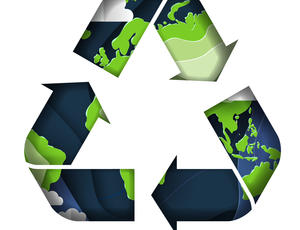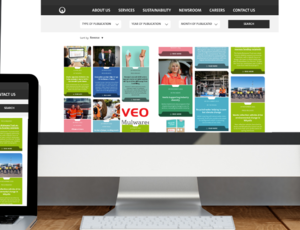Veolia, Australia’s leader in ecological transformation, is celebrating National Recycling Week by busting some common myths around recycling.
Chief marketing and communications officer, Kate Moonen, said turning the tide of misinformation was necessary if Australians are to be better equipped to minimise their environmental impact on the planet.
“While the priorities must be to reduce our usage at the outset and reuse materials where possible, recycling is the next best option,” she said.
“Recycling enables the circular economy, by reducing society’s mining of virgin materials and recovering value from our existing resources, so they can be used again.”
To better achieve that, Kate said it’s time some of the common misconceptions were corrected.
“One myth I often hear is that ‘biodegradable’ and ‘compostable’ mean an item is recyclable, which is incorrect,” she said, “These items should not go into your recycling bin, as it can contaminate the load.
"We know people want to recycle right. The best way to do that is to familiarise yourself with what can and can't go in your recycling bins by checking your council's website."
Here are some of the other more common myths – and the lesser known facts – about recycling.
Myth: All plastic with a triangle symbol can be placed in a recycling bin.
Fact: The triangle symbol is the plastic resin code. It is not an indication of a product’s recyclability. The Australasian Recycling Label is a useful on-pack labelling scheme that is helping consumers to recycle correctly. Check with your council or service provider what plastics they can recycle.
Myth: My recycling actually goes to landfill.
Fact: Recycling is taken to materials recovery facilities where it is processed to be made into new items. Where people mistakenly put the wrong items in the recycling bin, this runs the risk of contaminating the load. If the load has too much contamination, none of it can be recycled. This is why it's important to recycle correctly.
Myth: The only way to recycle is through my household kerbside collection bin.
Fact: There are other ways to recycle beyond council recycling. For example, container deposit schemes are also a great way to be rewarded for your contribution to saving the planet.
Myth: Compostable items can be recycled via the yellow or green bins.
Fact: Compostable and biodegradable items should never be placed in the recycling or green waste bins. These materials cannot be recycled into new products the same way that glass, paper, plastic bottles or organics can be. Avoid putting compostable items in your yellow and green bins.
<ENDS>
MEDIA CONTACTS
Dan Pagoda, External Relations Manager | +61 408 753 982 | [email protected]
Veolia Group aims to become the benchmark company for ecological transformation. Present on five continents with nearly 220,000 employees, the group designs and deploys useful, practical solutions for the management of water, waste and energy that are contributing to a radical turnaround of the current situation. Through its three complementary activities, Veolia helps to develop access to resources, to preserve available resources and to renew them. In 2021, the Veolia Group provided 79 million inhabitants with drinking water and 61 million with sanitation, produced nearly 48 million megawatt hours of energy and recovered 48 million tonnes of waste. Veolia Environnement (Paris Euronext: VIE) achieved consolidated revenue of 28.508 billion euros in 2021.





